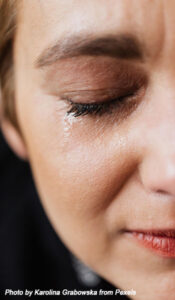My last post took a brief look at three untruths that authors Jonathan Haidt and Greg Lukianoff claim diminish young people’s ability to prepare effectively for the real world. I’ve had occasion to think about one such untruth this week in an on-line class – i.e., what doesn’t kill you makes you weaker.
 My instructor asked the group to reflect upon their relationship to failure. He asked: In what ways have you failed in the past? How did you experience it? To what lengths did you go to avoid it? I had no trouble coming up with examples:
My instructor asked the group to reflect upon their relationship to failure. He asked: In what ways have you failed in the past? How did you experience it? To what lengths did you go to avoid it? I had no trouble coming up with examples:
- Romantic relationships that had their moments but then went south (some due to a serious lack of judgment on my part!)
- Friendships that hit bumps in the road and did not recover
- Group affiliations that either lost cohesion or left me feeling like the odd-woman-out
- Promising career trajectories that never reached their potential
- Would-be avocations for which I simply lacked the talent, drive, or interest
I could go on and on… I’ve had some heart-breaking doozies in there, but I’ve never felt undone by any of them. Quite the contrary – I think they’ve made me a better person. Dr. Jonathan Haidt refers to this phenomenon as the “adversity hypothesis.” It says that people need adversity, setbacks, and even a modest amount of trauma to reach their highest levels of strength, fulfillment, and personal development. Of course, he’s not talking about experiences that would induce Post-Traumatic-Stress Disorder (PTSD) or chronic stress. Rather, challenges, failures, and dashed expectations can have healthy outcomes. Here’s why…
Adversity reveals hidden abilities that change one’s self-concept. We find that we are stronger than we might have realized and have access to coping mechanisms that can help us move forward. We can handle the upheaval and are less likely to become anxious the next time a challenge presents itself.
Adversity strengthens relationships and helps us “separate the wheat from the chaff” in our social circles. We feel love and gratitude toward those who were there for us during the crisis. We recognize that these relationships are the real treasures in our lives. We give less emotional weight to the relatively insignificant matters that temporarily disrupt our lives.
Adversity helps us put on the brakes and take stock of what we’re doing with our lives. We get to ask ourselves: Is this really how I want to spend my time? Am I working toward the right set of goals? Are my values aligned with the people and organizations that currently play central roles in my life? Should I throttle back on my activities and spend more time “being” instead of “doing”?
Adversity can be a great teacher if we take the opportunity to draw lessons from it. I can’t think of any past challenge from which I didn’t learn something about myself, my values, my choices, my environment, and my relationships that proved instrumental for making positive change. Admittedly, some of the insights took time to manifest, and some of the adjustments were painful to put into effect. But I’ve learned to identify and appreciate the upsides of a downer experience.
Haidt serves up a four-part recipe for surviving adversity: (i) Be an optimist. Train yourself to find the positive side of life. (ii) Build a strong support network. Sympathetic friends can be healing balms for life’s wounds. (iii) Have faith. Let it be a source of strength and a guidepost for your response to adversity. (iv) Write about the trauma with the intent of making sense of it. Lessons learned can take the sting out of unfortunate circumstances, ward off future episodes, and provide the impetus for course corrections on life’s journey.